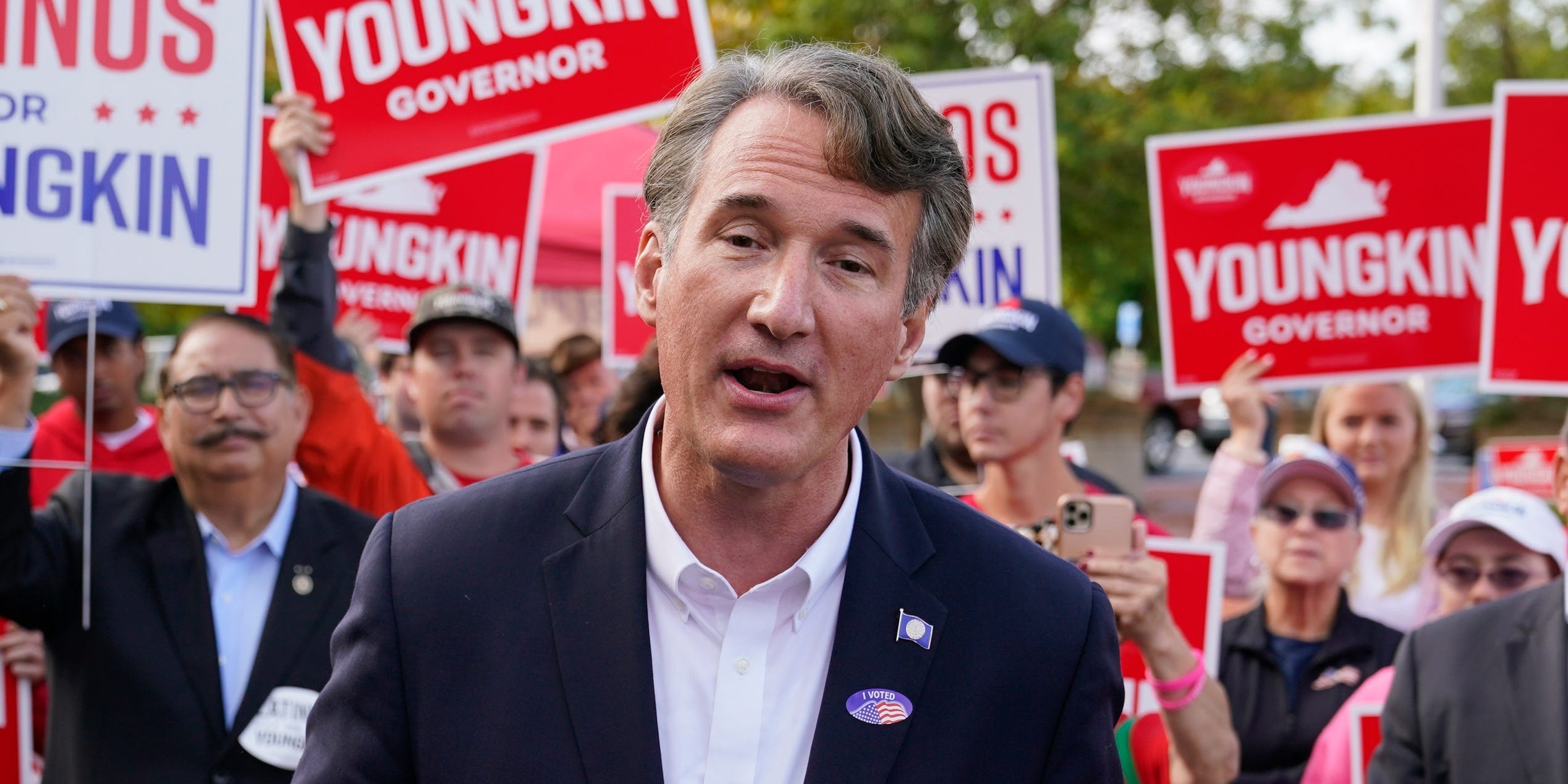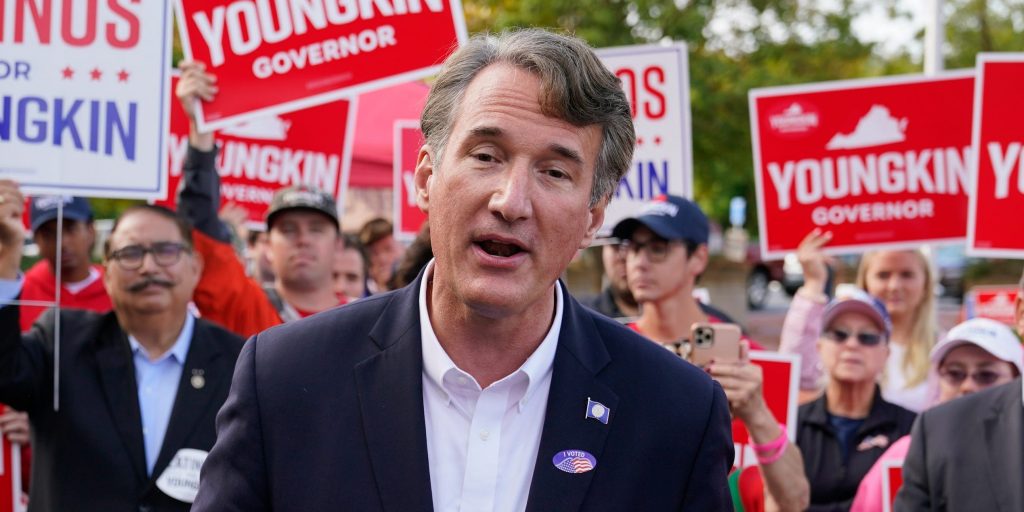
AP Photo/Patrick Semansky
- On Tuesday, Democrats did even worse with working class voters, including voters of color, than they did in 2020.
- Pollsters and strategists say Democrats need to sell their agenda and accomplishments directly to skeptical voters.
- "Non-white voters, it seems, trended heavily against Democrats compared to 2020," one Democratic pollster said.
Democrats suffered a string of bruising losses in blue states on Tuesday, an outcome political strategists say is a warning sign ahead of the 2022 midterm election cycle.
On the one hand, it's a classic off-year pendulum swing and the party controlling the White House almost always loses ground in subsequent elections. On the other hand, pollsters and strategists say Democrats' deep underperformance with rural voters, working class voters, and voters of color is a blinking red light ahead of the midterms, and even 2024.
In both Virginia and New Jersey, the Democratic gubernatorial candidates starkly underperformed Biden in working class and racially diverse counties. In Virginia, Democrat Terry McAuliffe, lost voters without a college degree to Republican Glenn Youngkin by between 10 and 20 percentage points, based on various exit polls. White working class women in Virginia swung particularly strongly against Democrats. A whopping 74% of non-college educated white women voted for Youngkin after 56% voted for Trump in 2020.
At the same time, exit polls suggest Republicans made smaller, but notable, gains among Black and Hispanic voters in both states.
Steve Schale, a Florida-based Democratic strategist who's advised Biden and former President Barack Obama, told Insider that Democrats need to meet rural, predominantly white, voters where they are.
"There's a basic floor that we have to get in Republican areas," he said. "In 2008 and 2012, in Virginia, North Carolina, and Florida, Barack Obama went out into rural communities and talked about the Second Amendment."
He added that instead of "talking to" rural voters, Democratic candidates are "talking at" them.
"You have to give voters who are not that naturally inclined to support you permission to find a way to be open to supporting you," Schale said. He argued that Obama employed that strategy amid the Great Recession and more recently, Republicans have done the same in Hispanic communities, where they've made significant gains in the last few years.
Democratic strategist and pollster Terrance Woodbury also faulted Democrats for failing to communicate their policy successes and promises directly to voters of color.
Woodbury said he spoke to Black voters in a Georgia focus group last week who were "acutely aware of their role in delivering the White House, the Senate, and Congress" to Democrats. "But that awareness comes with a level of expectation and they just do not believe progress is being made on their priorities."
He went on to say that Democratic messaging on Biden's Build Back Better Act, which Congress is still negotiating, isn't working, despite the popularity of the policies within it. Democrats have to sell each individual agenda item in the larger package.
"When we talk to some of these voters about the urgency of passing Build Back Better, they don't actually give a shit about that bill," Woodbury said. "Now, all of the micro policies and programs in there are extremely popular. But Build Back Better as a framework, as a brand, it doesn't have the same urgency for them."
Unlike the 2020 presidential race, the 2021 elections weren't a referendum on Donald Trump, and one Democratic pollster who requested anonymity to speak candidly said they showed the five-year-long trend of Democrats losing appeal among working-class voters and voters of color is only getting worse.
"Non-white voters, it seems, trended heavily against Democrats compared to 2020, which was already a very bad showing for Democrats," he said. "A lot of people wanted to wave away the fact that Republicans were doing better with non-white voters. It's very ideologically inconvenient."
